Wild Flower Sevens
Wild Flower Sevens card game by Pepys Games (Castell Bros Ltd), c.1960.
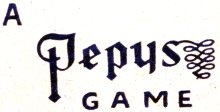
“Wild Flower Sevens” card game
Every card pictures a different Wild Flower...
Wild flowers have appeared as suit symbols on playing cards as far back as the fifteenth century. Flowers also appear on fortune-telling or oracle cards where the flowers suggest virtues or human qualities. In this children's card game published by Castell Brothers Ltd c.1960 each card shows in full colour a different specimen of Britain's beautiful wild flowers which can also be used to identify the flowers found outside.
Each card pictures a different wild flower and the pack is made up of 4 suits of 11 cards each. The suits are recognised by the shapes enclosing the numbers in the top left-hand corner of the cards and are Circle, Square, Diamond and Triangle. The cards of each suit are numbered 2 to 12, there being none numbered 1.
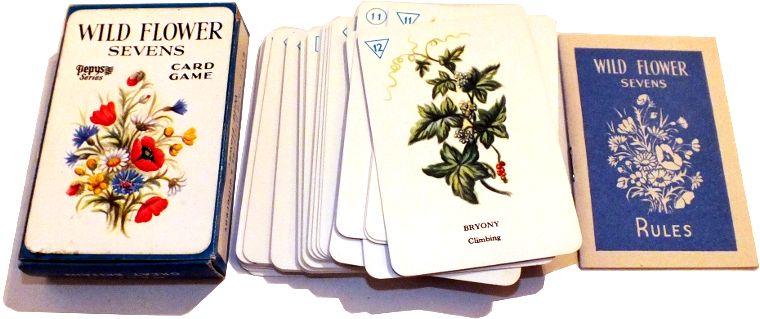
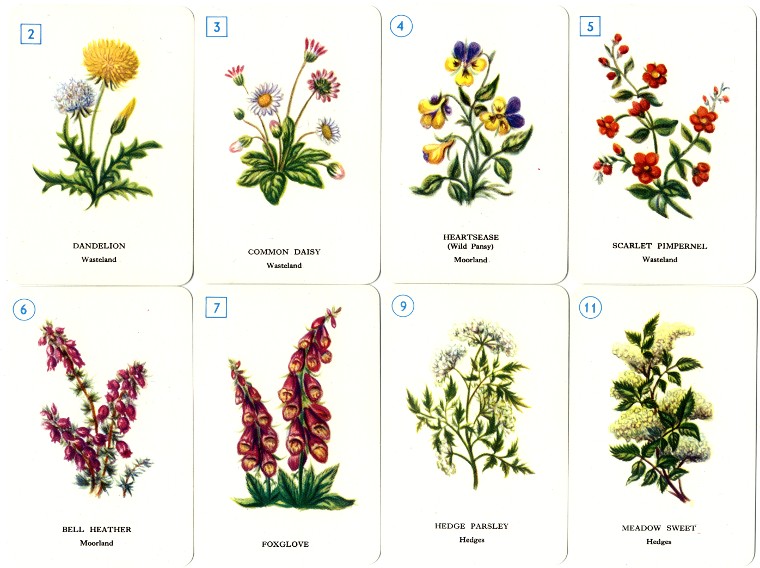
Above: Wild Flower Sevens card game by Pepys Games (Castell Bros Ltd) c.1960. The place where each flower is commonly found is printed at the bottom of every card.
By Simon Wintle
Spain • Member since February 01, 1996 • Contact
I am the founder of The World of Playing Cards (est. 1996), a website dedicated to the history, artistry and cultural significance of playing cards and tarot. Over the years I have researched various areas of the subject, acquired and traded collections and contributed as a committee member of the IPCS and graphics editor of The Playing-Card journal. Having lived in Chile, England, Wales, and now Spain, these experiences have shaped my work and passion for playing cards. Amongst my achievements is producing a limited-edition replica of a 17th-century English pack using woodblocks and stencils—a labour of love. Today, the World of Playing Cards is a global collaborative project, with my son Adam serving as the technical driving force behind its development. His innovative efforts have helped shape the site into the thriving hub it is today. You are warmly invited to become a contributor and share your enthusiasm.

Leave a Reply
Your Name
Just nowRelated Articles
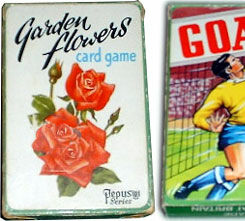
Pepys Games
The Story of Pepys Games by Rex Pitts

Little Grey Rabbit
Little Grey Rabbit illustrated by Margaret Tempest, 1954.
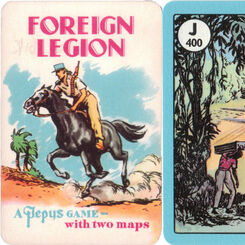
Foreign Legion
Foreign Legion published by Pepys, 1960.
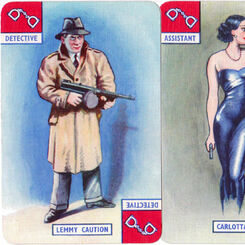
Crime Club
Crime Club card game by Peter Cheyney, issued by Pepys Games, 1939.

Secret Agent
Secret Agent by Pepys Games, the card game with the magic monocle, 1957.

Scouting
Scouting, a card game about boy scouts, appeared in 1955.
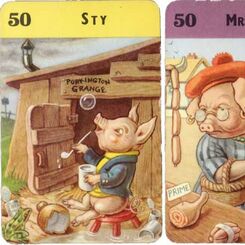
Farmyard Cries
Farmyard Cries card game, designed by Racey Helps and published by Pepys Games, 1952.
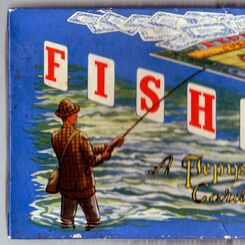
Fishing
Fishing published by Pepys Games, 1951.
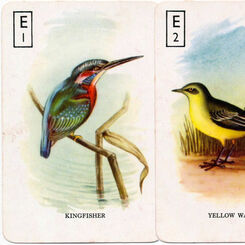
British Birds
Pepys “British Birds” card game with colour pictures, c.1968.
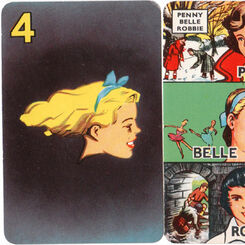
Girl
Girl card game published by Pepys Games, 1955.
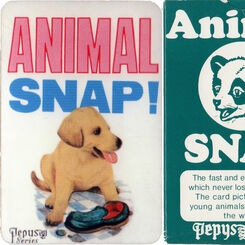
Animal Snap
Animal Snap published by Pepys Games, c.1960.
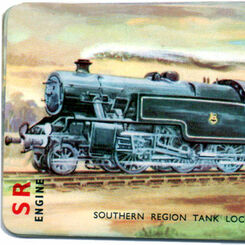
Express 2nd Edition
Pepys “Express” card game 2nd edition c.1955.

Progress
The story of “Pilgrim’s Progress” by John Bunyan illustrated in a card game published by Castell Bro...
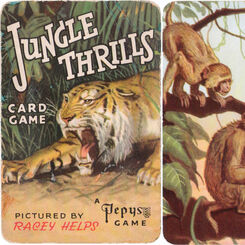
Jungle Thrills & Safari
Jungle Thrills illustrated by Racey Helps and published by Pepys Games, 1955.
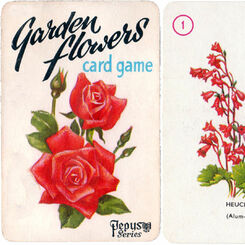
Garden Flowers
Garden Flowers card game designed by Dora Ratman, published by Pepys, 1961.
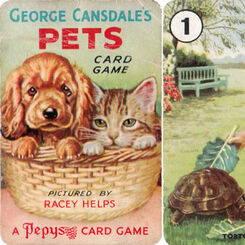
Pets / Family Favourites
Pets card game illustrated by Racey Helps was published by Pepys Games in 1955 but re-named Family F...
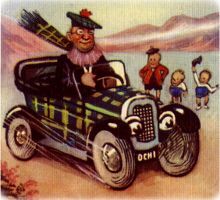
Belisha
Belisha, published by Castell Brothers Ltd (Pepys Games) in 1937, was produced with a desire to make...
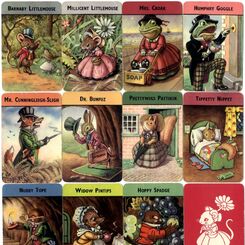
Woodland Snap
Woodland Snap is played with a pack of 44 cards illustrated with "Woodland" characters by Racey Help...
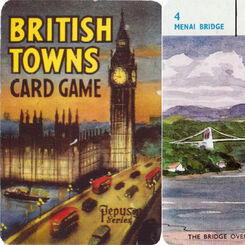
British Towns
British Towns Card Game by Pepys Games (Castell Brothers Limited).
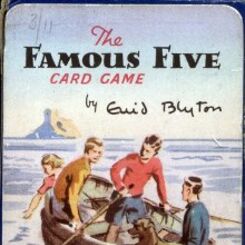
Famous Five
The Famous Five Card Game by Enid Blyton.
Most Popular
Our top articles from the past 60 days


 Your comment here. Your comment here. Your comment here. Your comment here. Your comment here. Your comment here. Your comment here. Your comment here. Your comment here. Your comment here. Your comment here. Your comment here. Your comment here. Your comment here. Your comment here. Your comment here. Your comment here. Your comment here. Your comment here. Your comment here. Your comment here. Your comment here. Your comment here. Your comment here. Your comment here. Your comment here. Your comment here. Your comment here. Your comment here. Your comment here. Your comment here. Your comment here.
Your comment here. Your comment here. Your comment here. Your comment here. Your comment here. Your comment here. Your comment here. Your comment here. Your comment here. Your comment here. Your comment here. Your comment here. Your comment here. Your comment here. Your comment here. Your comment here. Your comment here. Your comment here. Your comment here. Your comment here. Your comment here. Your comment here. Your comment here. Your comment here. Your comment here. Your comment here. Your comment here. Your comment here. Your comment here. Your comment here. Your comment here. Your comment here.




















